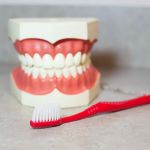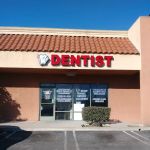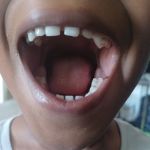How to Prevent Tooth Decay in Senior Citizens
- Understanding Tooth Decay in Senior Citizens
- Why Senior Citizens Are At Risk for Tooth Decay
- Top Strategies to Prevent Tooth Decay in Senior Citizens
- The Role of Dentists in Tooth Decay Prevention
- Real-Life Case Study: Preventing Tooth Decay in an Elderly Family Member
- Conclusion
1. Understanding Tooth Decay in Senior Citizens
Tooth decay is a common issue faced by senior citizens, but it’s often overlooked as a normal part of aging. As we grow older, our oral health changes, making it crucial to be proactive in preventing dental problems. When I first noticed my elderly parent’s increased difficulty with maintaining oral hygiene, it became clear that preventing tooth decay in seniors requires special attention and care.
Tooth decay, or dental caries, happens when the bacteria in our mouths feed on food particles and produce acid that erodes the enamel of the teeth. Over time, this can lead to cavities, gum disease, and even tooth loss. In seniors, this process can accelerate due to a variety of factors, including changes in saliva production, medication side effects, and reduced oral hygiene habits.
2. Why Senior Citizens Are At Risk for Tooth Decay
Understanding why tooth decay is more prevalent in senior citizens is key to preventing it. Over the years, our bodies go through changes that affect oral health, and seniors face unique challenges. Here’s why tooth decay becomes more common as we age:
2.1 Reduced Saliva Production
As we age, our bodies naturally produce less saliva. Saliva plays a crucial role in washing away food particles, neutralizing acids, and providing essential minerals that protect tooth enamel. When saliva production decreases, it can result in dry mouth, which makes teeth more vulnerable to decay.
2.2 Medication Side Effects
Many medications commonly prescribed to seniors, such as antihistamines, antidepressants, and blood pressure medications, can lead to dry mouth. This reduces the protective qualities of saliva, further increasing the risk of tooth decay. Additionally, some medications may cause gum problems, leading to inflammation or even gum disease, which also contributes to tooth decay.
2.3 Difficulty Maintaining Oral Hygiene
As people age, they may experience difficulties with manual dexterity, making it harder to properly brush and floss. Reduced mobility, arthritis, and cognitive impairments such as dementia can make regular oral care a challenge for seniors. When oral hygiene is neglected, plaque and bacteria build up, contributing to tooth decay.
3. Top Strategies to Prevent Tooth Decay in Senior Citizens
Preventing tooth decay in seniors doesn’t require drastic changes, but it does require consistent effort. Here are some strategies that have worked for me and my family members to maintain good oral health in senior citizens:
3.1 Regular Dental Checkups
One of the most important ways to prevent tooth decay in seniors is through regular dental visits. I always make sure my elderly parent sees the dentist at least twice a year. Regular checkups help catch any early signs of tooth decay or gum disease, and a dentist can provide professional cleanings to remove plaque that might be missed during daily brushing.
3.2 Good Oral Hygiene Practices
Brushing at least twice a day and flossing regularly is essential for preventing tooth decay. For seniors with difficulty holding a toothbrush, there are electric toothbrushes with easy-to-grip handles that provide effective cleaning. Using fluoride toothpaste can help remineralize enamel and protect against cavities. I’ve also found that using a mouthwash that contains fluoride can add an extra layer of protection.
3.3 Hydration and Saliva Substitutes
To combat dry mouth, it’s crucial to encourage seniors to stay hydrated. Drinking water regularly helps maintain moisture in the mouth. For those with severe dry mouth, saliva substitutes or mouth rinses designed to stimulate saliva flow can provide relief. I’ve seen firsthand how these small changes can make a big difference in reducing the risk of tooth decay.
3.4 Diet and Nutrition
Good nutrition plays a significant role in oral health. Encouraging a balanced diet with plenty of fruits, vegetables, and foods high in calcium and vitamins D and C can help protect teeth and gums. Avoiding sugary foods and drinks, which promote the growth of harmful bacteria, is also essential. Offering my elderly family member nutrient-rich, soft foods has helped improve their overall health, including their dental health.
3.5 Denture Care
For seniors who wear dentures, it’s vital to ensure proper denture care to prevent decay. Cleaning dentures regularly, soaking them overnight, and scheduling routine visits to the dentist for adjustments can prevent issues like tooth decay, gum irritation, and bad breath.
4. The Role of Dentists in Tooth Decay Prevention
Dentists play an important role in preventing tooth decay in senior citizens. Regular visits to the dentist are essential, as they can identify early signs of decay, provide professional cleanings, and offer personalized advice for maintaining oral health. During my parent’s dental visits, the dentist recommended fluoride treatments and certain dental products that have helped prevent cavities and improve their overall oral hygiene routine.
Moreover, dentists can provide valuable guidance on how to manage dry mouth, suggest specific products that may help, and monitor the condition of any existing dental work. They are an essential resource in the battle against tooth decay in seniors.
5. Real-Life Case Study: Preventing Tooth Decay in an Elderly Family Member
Let me share a real-life example of how we successfully managed to prevent tooth decay in an elderly family member. My aunt, in her late 70s, struggled with dry mouth due to her medications. She had several cavities in the past, and we were concerned about future dental issues. After consulting with her dentist, we implemented a combination of strategies:
We began encouraging her to drink more water and use saliva substitutes, which significantly reduced her discomfort. We also switched her to an electric toothbrush, which made brushing easier for her. With regular dental checkups and a few lifestyle changes, her oral health greatly improved, and her dentist reported that her teeth were in better shape during the last checkup.
6. Conclusion
Preventing tooth decay in senior citizens requires attention to both dental care and overall health. With the right strategies, such as regular checkups, improved oral hygiene, and lifestyle changes, it’s possible to maintain strong, healthy teeth well into old age. If you're looking for more tips or products to support oral health, visit Dentistry Toothtruth for expert advice and trusted dental products.







 Smiles 'R' Us Dentistry4.0 (254 review)
Smiles 'R' Us Dentistry4.0 (254 review) First Choice Dental- Madison East4.0 (289 review)
First Choice Dental- Madison East4.0 (289 review) Lincolnshire Dental Care4.0 (154 review)
Lincolnshire Dental Care4.0 (154 review) Advanced Dental Care of Riverdale4.0 (339 review)
Advanced Dental Care of Riverdale4.0 (339 review) Baldwin Park Family Dentistry4.0 (16 review)
Baldwin Park Family Dentistry4.0 (16 review) South Bay Children's Health Center5.0 (106 review)
South Bay Children's Health Center5.0 (106 review) The Importance of Oral Health Education During Pregnancy for a Healthy Pregnancy
The Importance of Oral Health Education During Pregnancy for a Healthy Pregnancy Best Tips for Brushing Your Teeth Properly for Healthy Gums: Essential Techniques for Oral Health
Best Tips for Brushing Your Teeth Properly for Healthy Gums: Essential Techniques for Oral Health Why Skipping Dental Checkups Can Lead to Bigger Oral Health Problems
Why Skipping Dental Checkups Can Lead to Bigger Oral Health Problems Advantages of Porcelain Dental Restorations
Advantages of Porcelain Dental Restorations How Can Diabetes Cause Tooth and Gum Problems? Preventing and Managing Oral Health Issues
How Can Diabetes Cause Tooth and Gum Problems? Preventing and Managing Oral Health Issues Healthy Habits for Promoting Good Oral Health and Hygiene: Tips for a Healthy Smile
Healthy Habits for Promoting Good Oral Health and Hygiene: Tips for a Healthy Smile